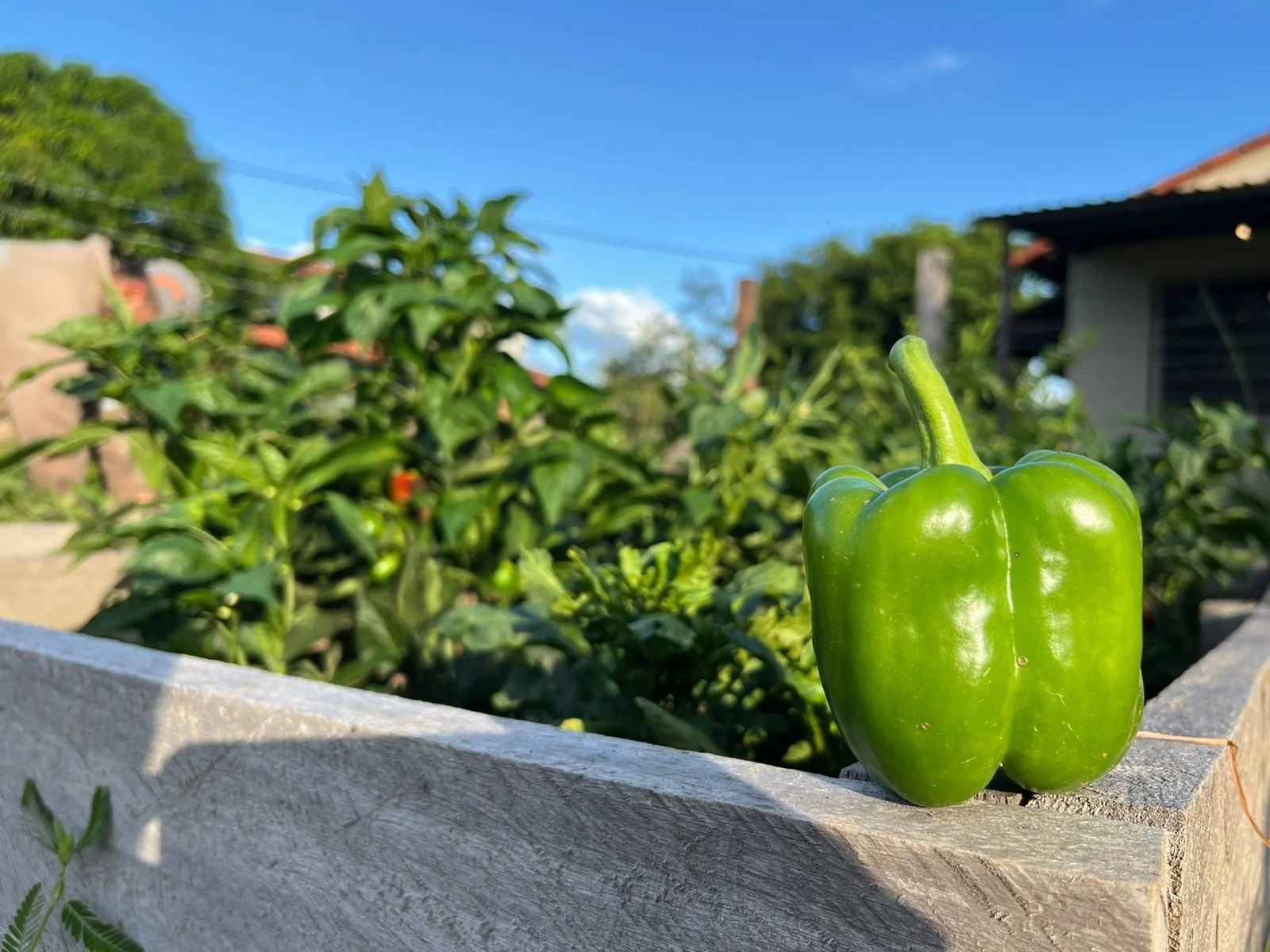The Evidence
10/16/2025
Ruddy Arauz
We have a garden that has produced all sorts of things, and it excites us to see all that it will yield. I’ve watched many plants sprout, grow, and bear fruit there, but I have to admit, I’m no expert. When they’re growing, they all look the same to me: green leaves, similar stems, even almost identical flowers. Sometimes I think it could be a bell pepper, or maybe one of the more than three thousand varieties of chili peppers that exist. But when the fruit appears, there’s no discussion: if it produces tomatoes, it’s a tomato plant; if it produces lemons, it’s a lemon tree; and if it produces chili, you can even tell which variety it is. The fruit reveals what kind of plant it is and serves as evidence of a productive plant, one fulfilling its purpose. Because if a plant meant to bear fruit does not bear fruit, no matter how beautiful and healthy it looks, it’s not very useful.
Several years ago, I had a conversation with a ministry leader. In the middle of our talk, she looked at me and asked, “How is your relationship with God?” I thought quickly. I had been a Christian for a few years, so I answered with the word we all use when we don’t want to go into detail: “Good.” She smiled and asked again, “And how do you know it’s good?” Then I answered by mentioning how many times I had read the Bible that week, whether I had prayed, whether I had attended church, or served in ministry. She responded affirming my answer and kindly said: “Very good, but it can improve. Give more time to prayer and to the Word.”
This idea is very common among believers. Many of us have defined “what a Christian looks like” based on habits, activities, appearances, or other personal ideas. We even judge whether a church “is doing well” by the size of the building, the number of attendees, the type of service, the number of programs and activities, or the pastor’s reputation. But when we decide to follow Christ, our opinions must yield to His will. The true evidence of a Christian is not defined by culture but by the gospel. Jesus was clear: “By their fruit you will recognize them” (Matthew 7:16). So we can speak, sing, attend faithfully, and serve with passion, but the true evidence of a transformed life is not in what we say or appear to be, but in what we produce. Jesus did not say, “By their services you will recognize them,” nor “by how often they pray,” or “by how much they study,” but “By the love you have for one another” (John 13:35). And to be clear: praying, studying the Bible, being an active part of the church, and many other things are very necessary—but they are not the evidence. They are the nutrients that help produce the fruit, which is love for one another.
Since the beginning of the year, we’ve been studying 1 Corinthians at church, and it has been a very challenging study. A few weeks ago, we reached chapter 13. Paul says that we can have all the gifts and talents, but if we do not have love, we are nothing. We can make enormous sacrifices, but without love, they are worthless. He then describes that love beautifully: a love that reflects Christ Himself. Paul is showing and encouraging the Church that this type of community is possible, where the perfect bond is the love of Christ (Colossians 3:14).
Love is the evidence of a living faith. It is the fruit that shows whether we are truly being transformed by the power of the gospel. Paul wrote: “But the fruit of the Spirit is love, joy, peace, patience, kindness, goodness, faithfulness, gentleness, and self-control” (Galatians 5:22-23). Notice he does not say “the fruits,” but “the fruit.” It is one, with many expressions, and everything begins with love. But not just any love: not the one the world defines based on feelings or preferences, but the love that comes from Christ, which transforms and renews us when we yield to Him.
Jesus told Nicodemus that it is necessary to be born again. We are not called to be better people, but new people, where His life becomes our standard. That’s why we can’t love with this kind of love unless we’ve truly known God, because God is love (1 John 4:8). In fact, we love because He first loved us (1 John 4:19). Jesus summarized the law as: love God and love others (Matthew 22:37-40). From the lens of the gospel, these are indivisible. One cannot exist without the other. I cannot love God and hate my brother (1 John 4:20), and I cannot love my brother if I don’t know God (1 John 4:8).
Just as in the garden the fruit shows that a plant is alive and productive, love shows that faith is genuine. We may have green leaves, a good appearance, and the right words, but without fruit, faith is empty. As John says: “…let us not love with words or speech but with actions and in truth” (1 John 3:18). I love miracles: healings, provision, amazing answers to prayer, and I want to see them often. But if I think carefully, there is no greater miracle than a person transformed into the image of Christ. And there is no more powerful testimony than a church where the love of Christ flows naturally.
That is the evidence.
Ruddy Arauz is a licensed dentist by profession and has been part of the Red Roots team for over 12 years. He currently serves as one of the pastors at El Jireh Church and as the clinic administrator, where his leadership and dedication strengthen both the ministry and community.


